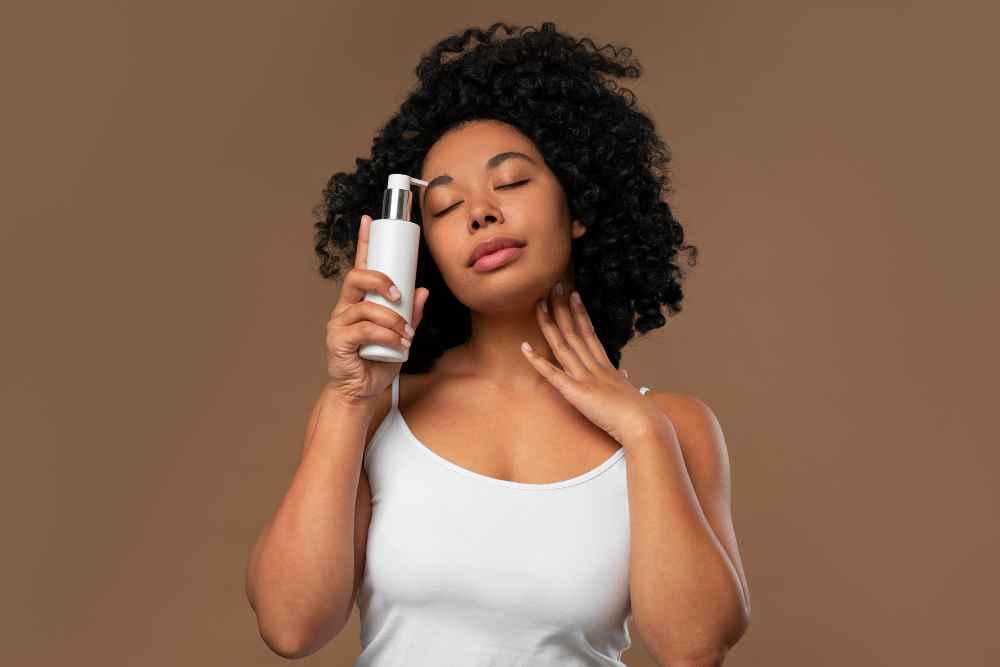Cantu, a popular hair care brand, has become a go-to choice for many with textured hair. But with its rise in popularity, questions about its impact on hair health have emerged. This article delves into the science behind Cantu products to help you decide if they’re right for you.
Understanding Cantu’s Approach
Cantu focuses on natural ingredients like shea butter and oils, aiming to provide moisture and protection for textured hair types (wavy, curly, coiled, kinky). Affordability and a focus on natural ingredients make them accessible to a wide audience.
Ingredient Breakdown
Cantu products contain natural emollients, fatty alcohols, and herbal extracts. While these can be beneficial, some concerns exist about buildup. Shea butter and coconut oil, while great for curls, can accumulate if not cleaned properly.
The Alcohol Debate
The presence of alcohol in some Cantu products raises concerns. It’s important to differentiate between drying alcohols and moisturizing ones. While some formulations contain drying alcohols (Alcohol Denat), their concentration matters.
Petrolatum and Buildup
Petrolatum, another ingredient, offers moisture but can also cause buildup. Its thick consistency can be hard to remove without proper clarification.
Cantu for Different Hair Types
Textured Hair Compatibility
Cantu products are designed for textured hair, but individual hair characteristics play a role. Hair thickness, porosity, and sensitivity to buildup all influence compatibility.
Fine or Low Porosity Hair Challenges
While Cantu might be great for thick, dry curls, individuals with fine or low porosity hair might face challenges due to the product’s heaviness and buildup potential.
Maximizing Benefits and Addressing Concerns
Curly Girl Method Compatibility
Cantu products may not always align with the Curly Girl Method (CGM) due to ingredients like waxes, mineral oil, or drying alcohol. Utilize resources like curlscan.com to find CGM-approved Cantu options.
Optimizing Product Usage
To minimize buildup and maximize benefits, consider:
- Regular sulfate-free clarification.
- Judicious product layering.
- Choosing formulations for your specific hair needs.
The Textured Hair Spectrum
Textured hair encompasses a wide range, from loose waves to tight coils. Cantu aims to address these diverse needs, but other factors like climate, styling practices, and hair health also play a role.
Ingredient Analysis is Key
Understanding each ingredient’s role and its interaction with your hair type is crucial for deciphering Cantu’s formulations.
Potential Challenges with Cantu Products
Buildup Dilemma
Buildup is a concern, especially for fine or low porosity hair. The rich, emollient-based formulations can lead to limp, weighed-down curls and scalp issues. Regular clarification and strategic product selection are key.
Alcohol and Petrolatum Considerations
While some alcohols (cetyl alcohol) can benefit hair, drying alcohols (Alcohol Denat) raise concerns. Similarly, petrolatum offers moisture but can be difficult to remove, especially with co-washing or sulfate-free shampoos.
Maximizing Efficacy with Cantu Products
Tailoring Products to Individual Needs
One size doesn’t fit all. Consider your specific hair needs (moisture, curl definition, scalp health) when choosing Cantu products.
Strategic Product Usage
- Regular clarification with sulfate-free shampoos.
- Judicious product layering.
- Periodic scalp exfoliation.
- Experimenting with different Cantu formulations.
The Cantu Conundrum: Conclusion
Cantu products offer benefits for many textured hair types, but potential drawbacks like buildup exist. By understanding your hair and employing strategic hair care practices, you can harness Cantu’s benefits while minimizing risks. Informed decision-making is key to navigating the Cantu conundrum.
Additional SEO Tips:
- Include relevant keywords throughout the content naturally.
- Optimize title tags and meta descriptions for search engines.
- Create high-quality backlinks to your content from other websites.
- Ensure your website is mobile-friendly.
A Deeper Dive into Cantu: Is It Right for You?
While Cantu has gained popularity for its affordability and focus on natural ingredients, it’s essential to assess its suitability for your specific hair type and concerns.
Key Considerations:
- Hair Type: Cantu products are generally well-suited for textured hair, particularly those with medium to high porosity. However, individuals with fine or low porosity hair might find the products too heavy, leading to product buildup and limp hair.
- Hair Concerns: Cantu’s moisturizing formulas can be beneficial for dryness, frizz, or lack of definition. However, if you’re prone to oily hair or scalp issues, lighter formulations might be more suitable.
- Product Selection: Cantu offers a wide range of products, including shampoos, conditioners, leave-in conditioners, styling creams, and gels. It’s crucial to select products that align with your specific hair needs and concerns.
- Patch Testing: Before introducing any new product to your hair care routine, it’s advisable to conduct a patch test to rule out potential allergic reactions.
Tips for Using Cantu Products Effectively:
- Clarify Regularly: Use a clarifying shampoo to remove buildup and ensure the effectiveness of other products.
- Deep Condition Frequently: Deep conditioning treatments can help to restore moisture and improve hair elasticity.
- Layer Products Strategically: Start with lighter products like leave-in conditioners and serums, and then add heavier products like styling creams and gels as needed.
- Experiment and Find Your Routine: Everyone’s hair is unique. Experiment with different Cantu products and techniques to find what works best for you.
The Bottom Line:
Cantu products can be valuable to your hair care routine, especially if you have textured hair. However, it’s essential to understand your hair’s specific needs and choose products accordingly. By following best practices and tailoring your routine to your hair type, you can maximize the benefits of Cantu products and achieve healthy, beautiful hair.
Remember, what works for one person may not work for another. It’s always a good idea to consult a hair professional for personalized advice.
By following these tips, you can improve the SEO of your content and increase its visibility in search results.




